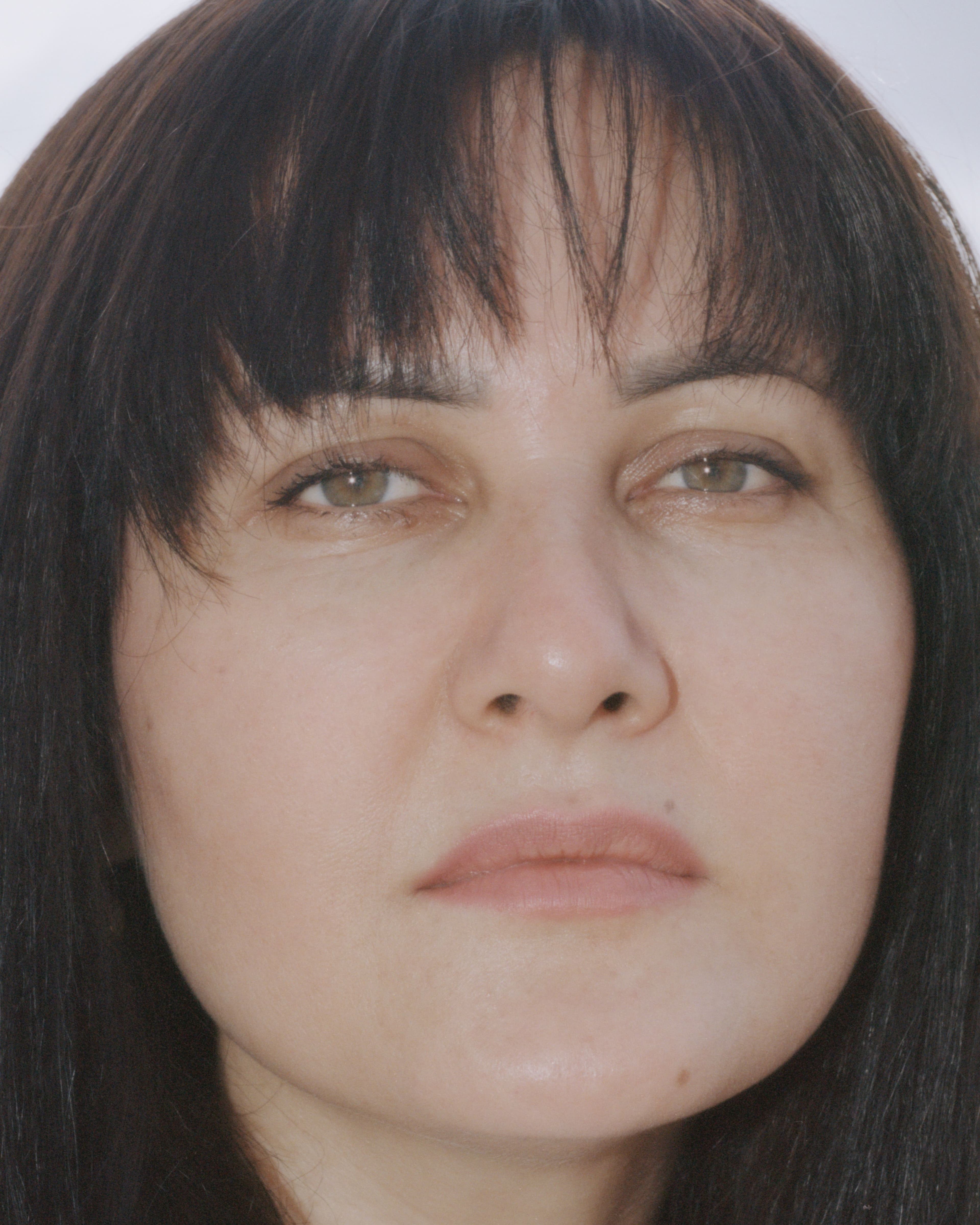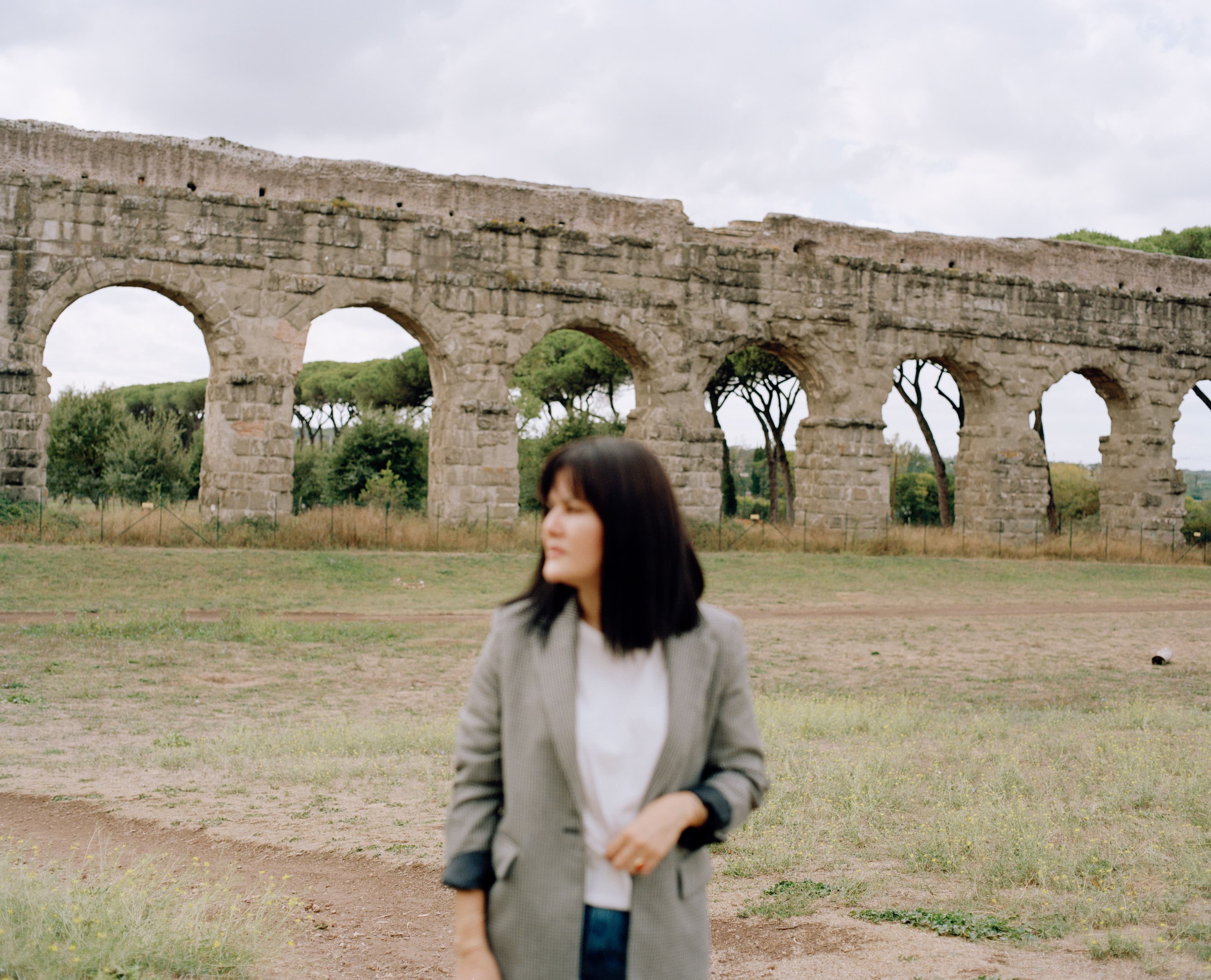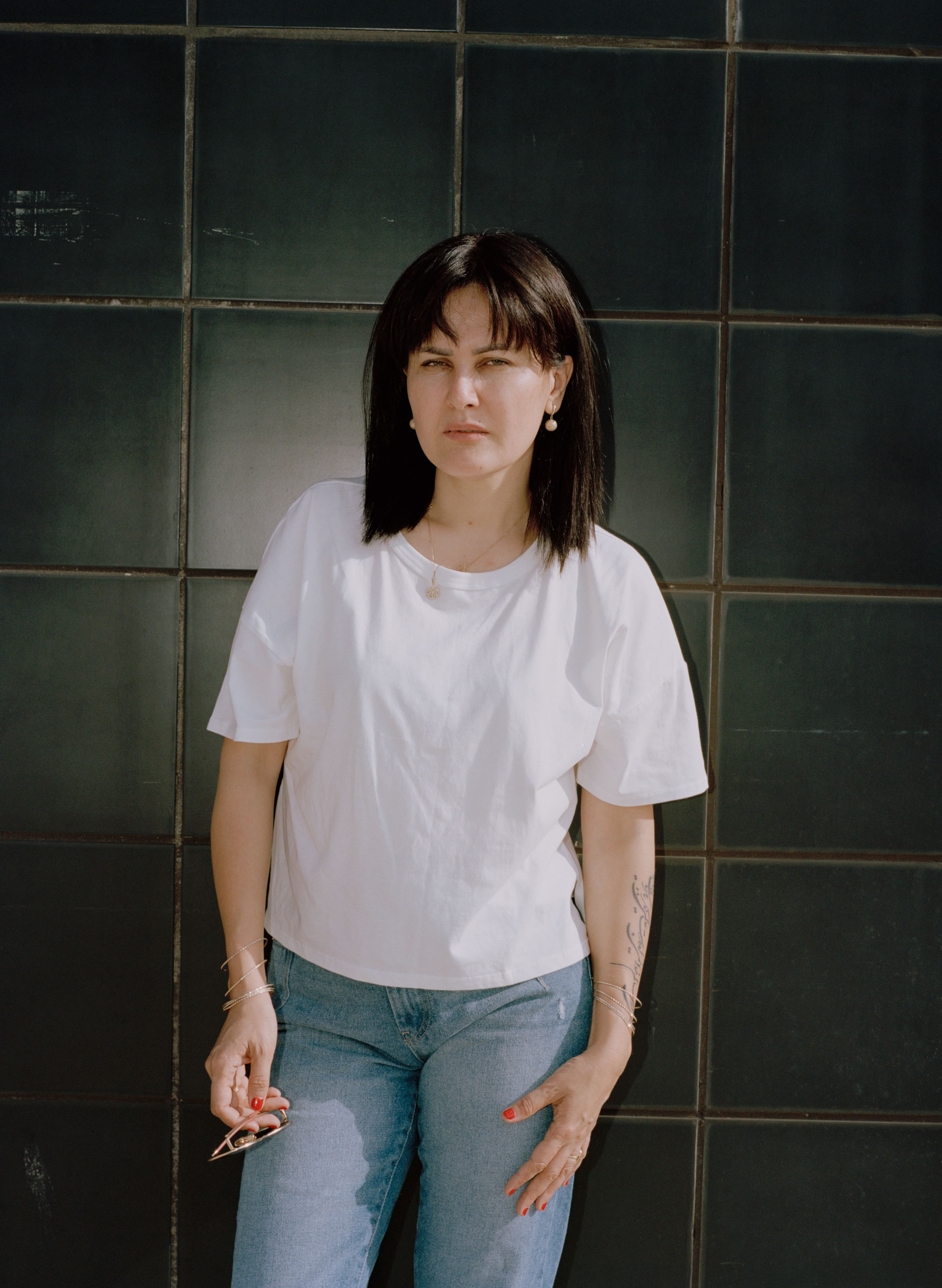
Sahraa Karimi’s Flight from Kabul
One “film“ the director Sahraa Karimi probably never imagined she’d make is a video of herself, dressed in a stone-gray headcover and abaya, frantically running through the streets of her hometown Kabul to the eerie sound of bullets. The livestream, aired through her Twitter account on August 15, 2021, depicted the harrowing fall of Afghanistan’s capital, foreshadowing a bleak future for women like her. “Al salamu alaikom,“ she says amid heavy breaths in the video, which has since gone viral. “The Taliban have entered the city and we are running away from them. Everyone is petrified.“
For many Afghans like Karimi, the Taliban represent a regime that has been historically oppressive towards women, instituting notorious restrictions that included banning them from public spaces without a blood relative accompanying them or without wearing a burqa, a law they reinstated soon after returning to power. Women were prohibited from working on radio or television or in government, and those who wanted to seek an education were forced to attend underground schools, risking their lives if the Taliban found out.
In August 2021, the United States completed its final withdrawal from Afghanistan, marking the end of a twenty-year war—America’s longest—triggered by the September 11 attacks and the Taliban’s refusal to hand over terrorist leader Osama bin Laden at the time. After two decades of civil disruption and political turmoil, and in the months leading up to the American exit last summer, the Taliban led major and unexpected offensives, gradually gaining control over the country until their eventual capture of Kabul on August 15.

A Kabul native, Karimi was one of the lucky ones who managed to escape the country, forty hours after she got to the airport. For over two years before her miraculous escape, she served as the first female chairperson of the government-owned Afghan Film, which was established in 1968. Karimi faced significant challenges in encouraging the homegrown film scene in Afghanistan, but she is nevertheless proud of what she was able to achieve despite various limitations, including shortfalls in funding and pushback from some government officials and local filmmakers alike.
Raised in Tehran and educated in Slovakia, Karimi decided to move back to Kabul in 2012, where she lived and continued to work, make films, and push through difficulties, hoping the winds of change, of a more vibrant and inclusive nation, would work in her favor. “I really accepted all the challenges. I faced many challenges and many judgments. I was a stranger in my own country,“ she recalls. “My lifestyle and attitude were different. They didn’t like me so much, but I accepted all those difficulties because I believed in bringing positive change to society.“
Karimi’s art is equal parts political and personal, telling the rich stories of her native Afghanistan, particularly those of Afghan women. With an impressive portfolio under her belt, she has directed thirty short films, three documentaries, and a fictional feature, Hava, Maryam, Ayesha, which premiered at the 2019 Venice Film Festival and was selected as Afghanistan’s official entry for the International Feature Film Academy Award that year. Hava, Maryam, Ayesha has been heralded as the “first independent Afghan film entirely shot in Kabul“ and tells the story of three Afghan women of diverse socioeconomic backgrounds, each grappling with societal and patriarchal tensions in their private lives. The film provides insight into the lives of Afghan women while also striking a common chord with international audiences about universal topics such as marital infidelity and premarital relationships.

Despite this prolific and impressive career, when I ask Karimi what her favorite personal piece of work has been to date, she humbly responds: “I need to make more films. My favorite films did not come [yet].“
Since her escape, which she refers to as the hardest decision of her life, Karimi has started a new chapter, working as a visiting professor at the Rome National Film School while also writing the script of her upcoming film. Titled Flight from Kabul and currently in development, the film memorializes the dreadful final forty hours of her escape from Afghanistan. Since the Taliban’s return to power, Afghans now make up one of the largest refugee populations worldwide, with 2.6 million registered globally and another 3.5 million people internally displaced.
While Karimi continually recalls the chaotic events of that August 15, she exudes defiance—and hope as well. “Through this film, I want to show different parts of life in Afghanistan. It is not [just] about flight and [it is] not all about airports,“ she says. “I want to bring alive, again, our lives in Kabul before the 15th of August.“
See this story and many more in print by ordering CERO04 here.
As a nonprofit arts and culture publication dedicated to educating, inspiring, and uplifting creatives, Cero Magazine depends on your donations to create stories like these. Please support our work here.

As a nonprofit arts and culture publication dedicated to educating, inspiring, and uplifting creatives, Cero Magazine depends on your donations to create stories like these. Please support our work here.






